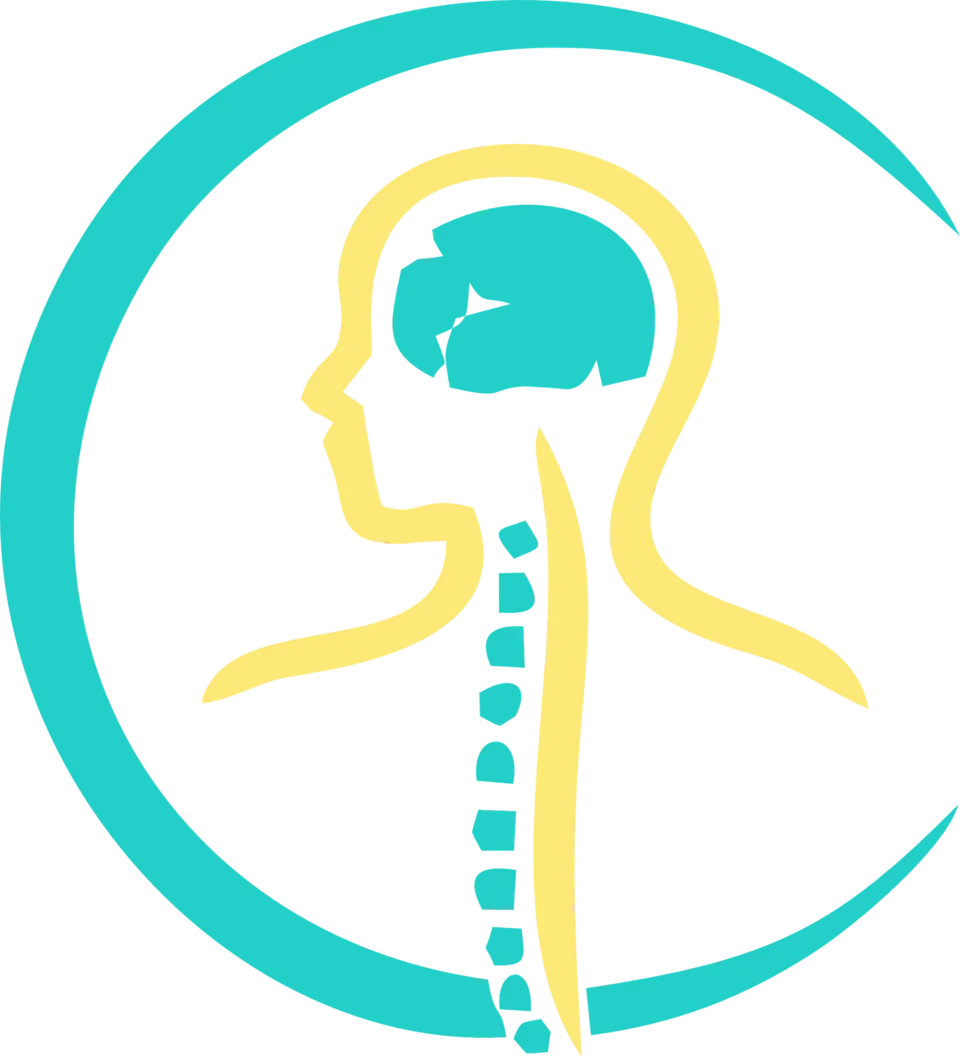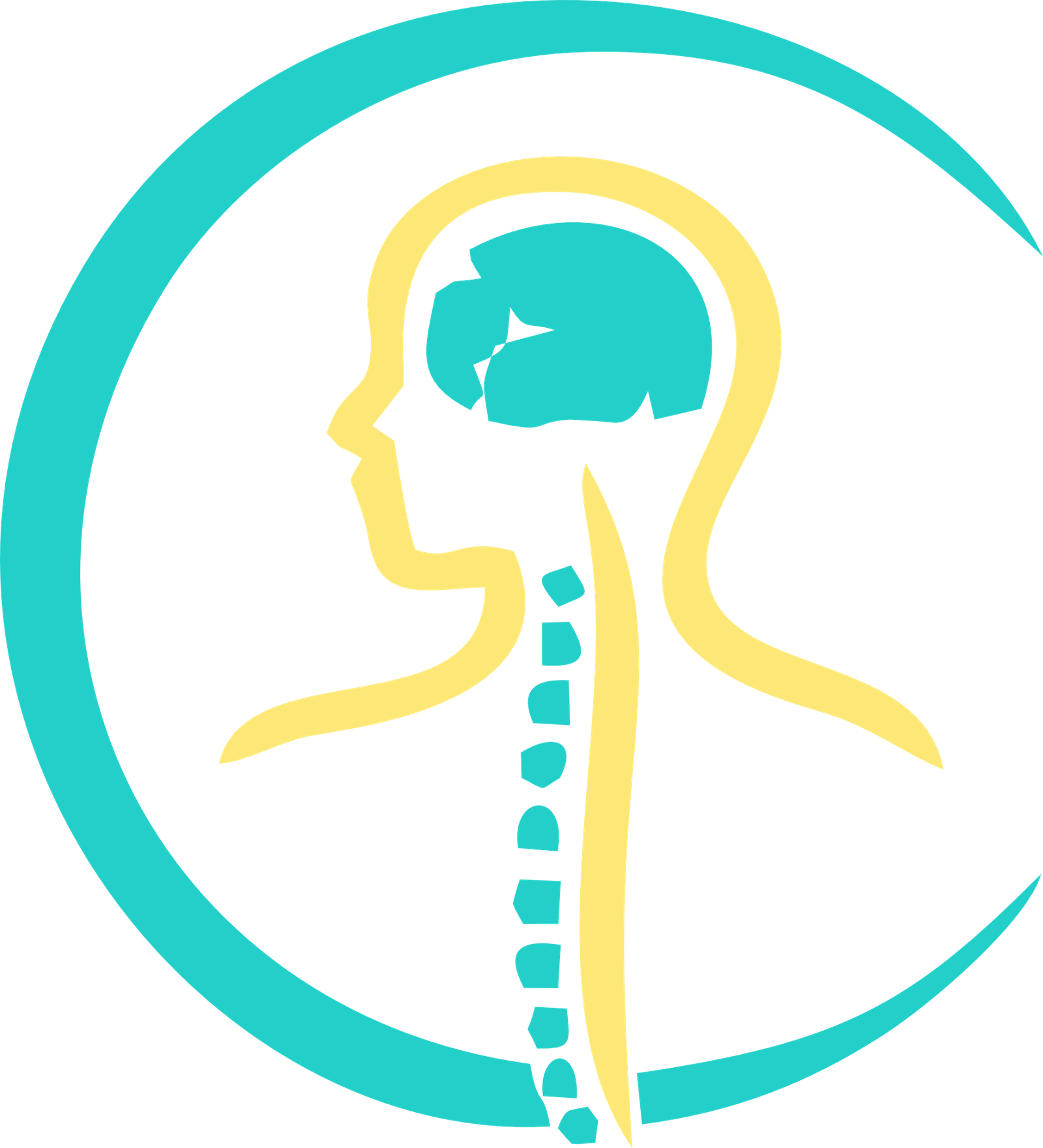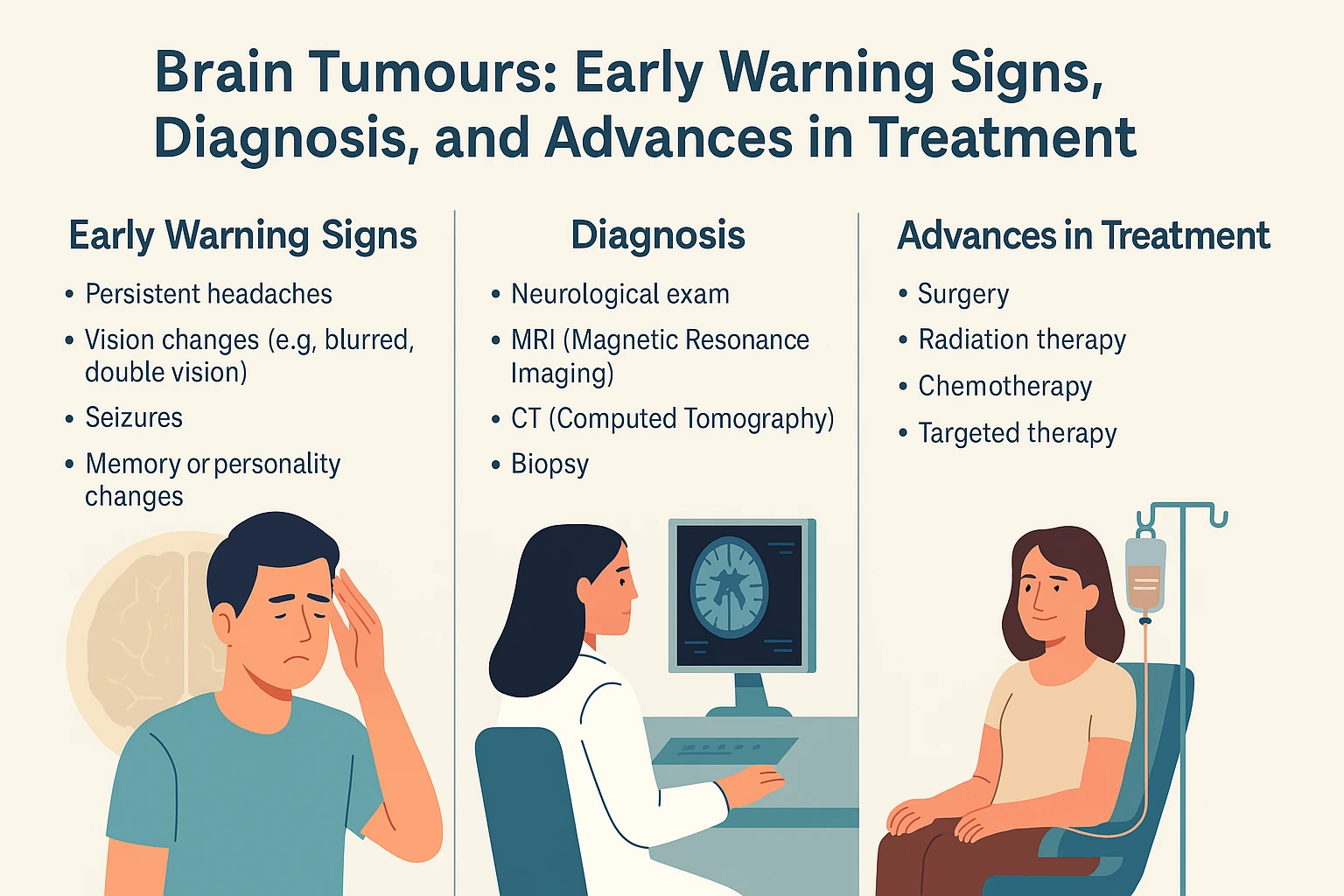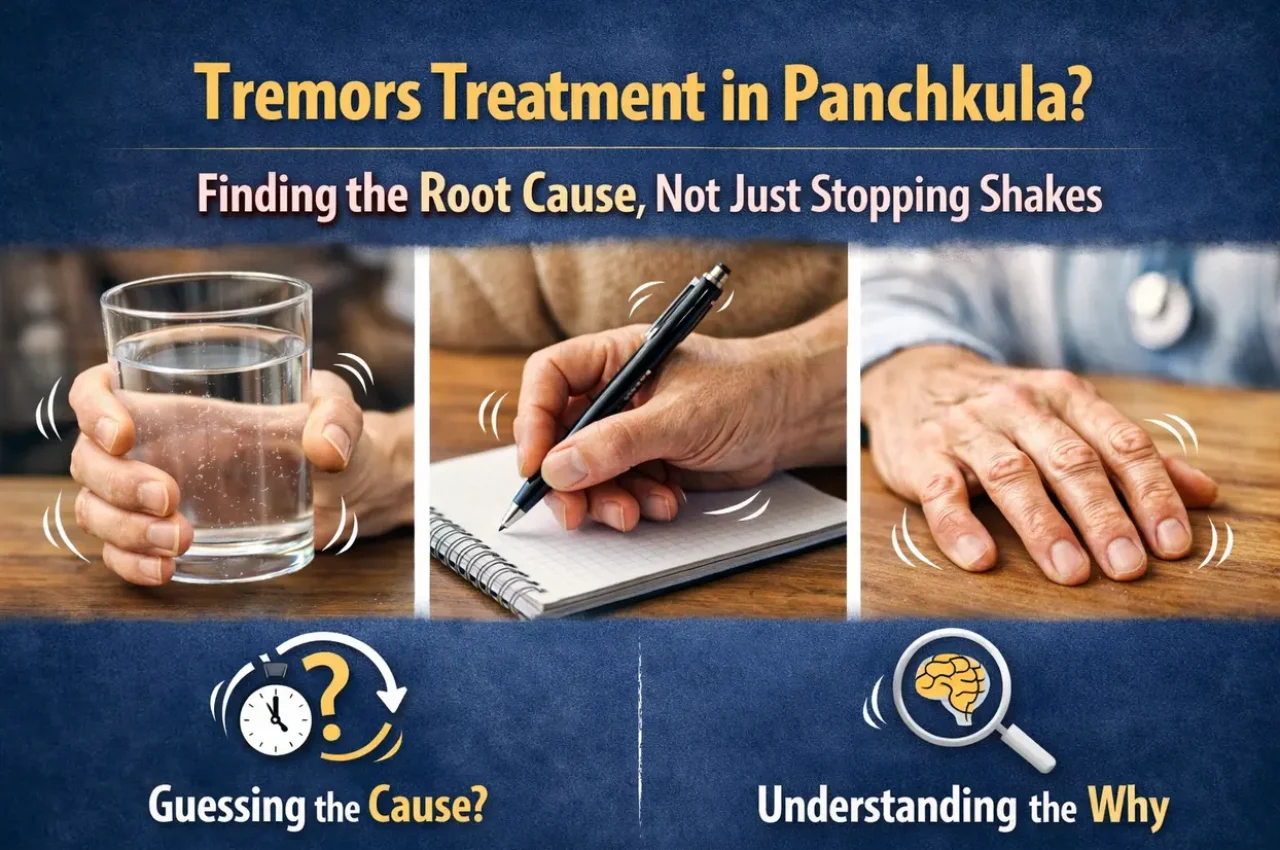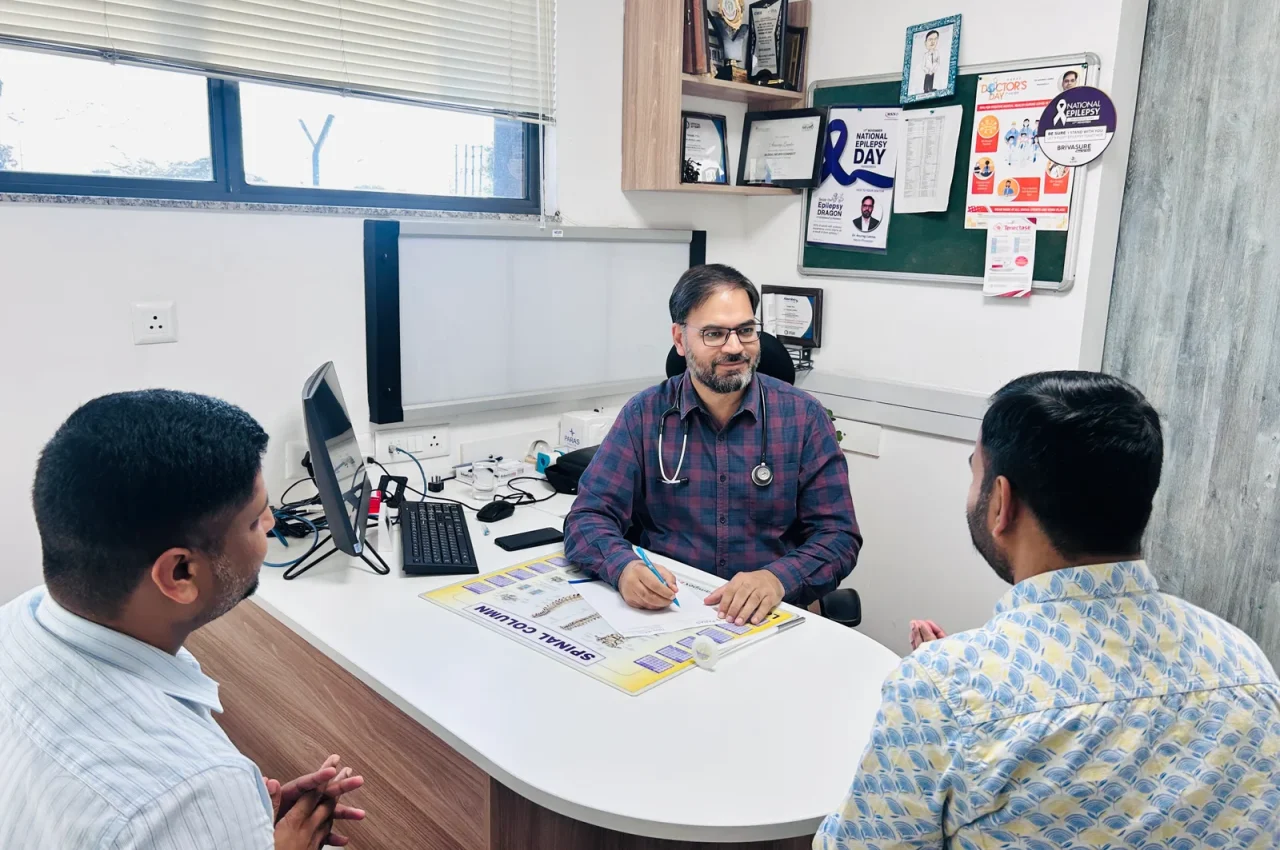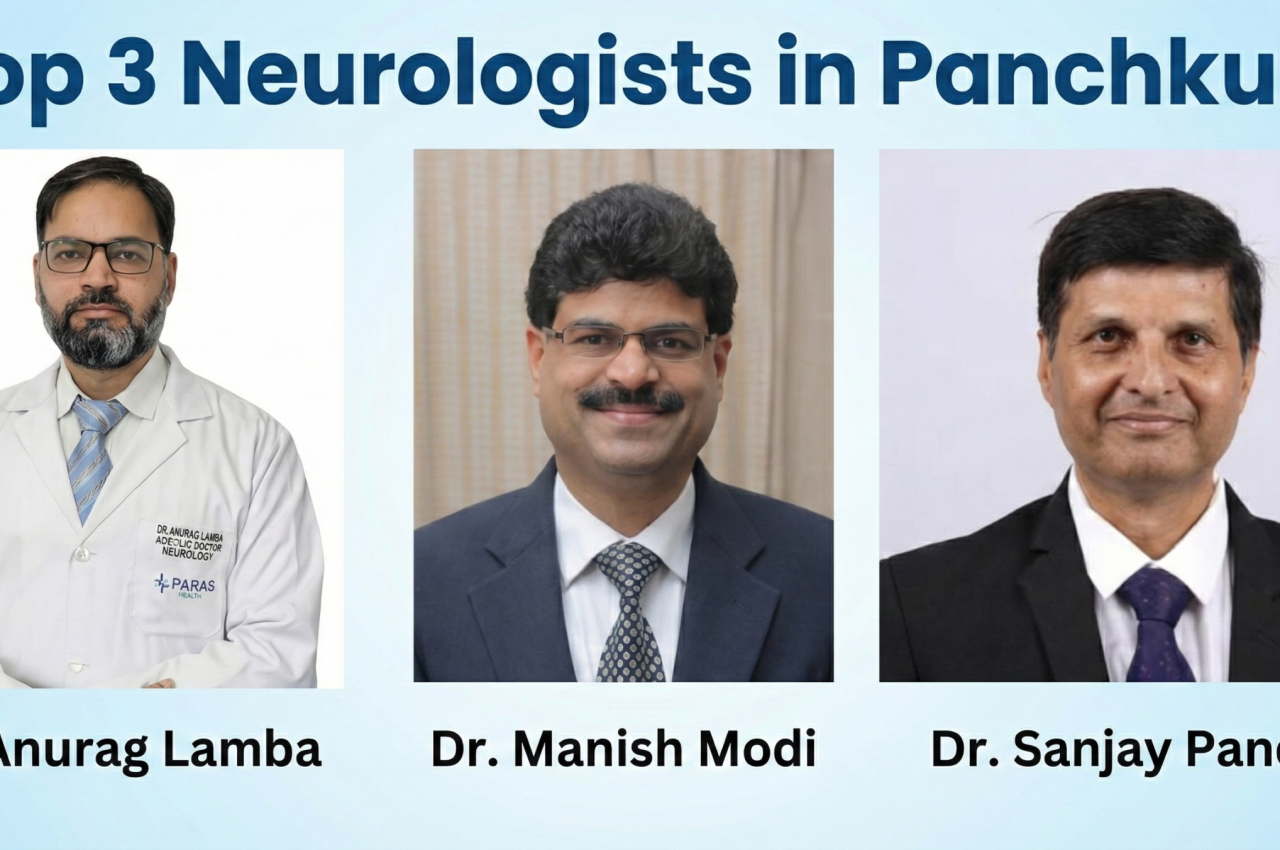Do You Know the Early Signs of a Brain Tumor?
Not every headache or dizzy spell is harmless. While brain tumors are relatively rare, they can often be mistaken for common neurological issues in their early stages. That’s why early detection is critical.
At Dr. Anurag Lamba’s Neuro Clinic in Panchkula, we believe awareness is the first step. In this article, you’ll learn:
✔ Common early warning signs of brain tumors
✔ How they are diagnosed
✔ The latest treatment options available today
What Is a Brain Tumor?
A brain tumor is an abnormal growth of cells in or around the brain. It may be benign (non-cancerous) or malignant (cancerous). Even benign tumors can be dangerous if they grow and press on brain structures.
Brain tumors can originate in the brain (primary tumors) or spread from other parts of the body (secondary or metastatic tumors).
Early Warning Signs of a Brain Tumor
Symptoms can vary based on the tumor’s location, size, and growth rate, but some common signs include:
⚠ Common Brain Tumor Symptoms
- Persistent, worsening headaches (especially in the morning)
- Sudden changes in vision (blurring, double vision, or loss of vision)
- Seizures in someone with no prior history
- Memory problems or personality changes
- Difficulty speaking or understanding language
- Weakness or numbness on one side of the body
- Loss of balance or coordination
If these symptoms are new, frequent, or worsening, consult a neurologist immediately.
💡 Related Read: Learn about other neurological concerns in Headache & Migraine: Causes, Symptoms, and Treatment Options
How Are Brain Tumors Diagnosed?
Early and accurate diagnosis is key to effective treatment. At Dr. Anurag Lamba’s clinic, the following approach is taken:
🧪 Diagnostic Tools
- Neurological Examination – Reflexes, muscle strength, eye movement, and coordination are tested.
- MRI Scan (Magnetic Resonance Imaging) – The most precise imaging technique for detecting brain tumors.
- CT Scan – Useful in emergency cases and to detect bleeding or swelling.
- Biopsy – A sample of the tumor tissue may be collected for lab analysis to determine its type.
- EEG (Electroencephalogram) – If seizures are involved, EEG helps detect abnormal brain activity.
💡 Tip: Early diagnosis reduces treatment complexity and improves outcomes significantly.
Types of Brain Tumors
Understanding tumor types helps guide treatment decisions.
🔹 Common Benign Tumors:
- Meningioma – Develops from membranes around the brain
- Acoustic neuroma – Affects hearing and balance nerves
- Pituitary adenoma – Affects hormonal function
🔸 Common Malignant Tumors:
- Glioblastoma Multiforme (GBM) – Fast-growing, aggressive
- Astrocytoma – Can be low- or high-grade
- Metastatic tumors – Spread from cancers elsewhere in the body
Treatment Options for Brain Tumors
Treatment is highly personalized based on tumor type, size, location, and the patient’s overall health.
🧠 Surgery
Often the first step if the tumor is operable. Advanced techniques like image-guided neurosurgery minimize damage to healthy brain tissue.
💊 Radiation Therapy
Used post-surgery or when surgery isn’t possible. Modern techniques like stereotactic radiosurgery (Gamma Knife) offer precision without open surgery.
💉 Chemotherapy
May be used alongside radiation for malignant tumors. Oral and IV medications are used depending on the tumor type.
🧬 Targeted Therapy & Immunotherapy
Newer treatments that target specific tumor cells or boost the body’s immune response are showing promise, especially for recurrent or resistant tumors.
💡 Related Read: Explore procedures in Neurosurgery 101: Common Brain & Spine Procedures Explained
Living with a Brain Tumor: What Patients Need to Know
Life after a brain tumor diagnosis can be challenging but manageable with proper support.
- Regular follow-ups and scans are crucial
- Rehabilitation therapies (speech, physical, occupational) may be needed
- Emotional support through counseling can help patients and families cope
- Nutritional care, pain management, and seizure control may be part of ongoing care
At our Panchkula clinic, we support patients beyond the operation table—with holistic, long-term care planning.
When Should You See a Neurologist?
You should not wait until symptoms worsen. Visit a neurologist if you experience:
- Unexplained persistent headaches
- Sudden neurological symptoms (vision loss, confusion, seizures)
- Family history of brain tumors or neurological disorders
📍 Early consultation can help avoid emergency situations and improve your quality of life.
Final Thoughts: Don’t Ignore Brain Health
Brain tumors can be life-threatening—but with early detection and the right care, outcomes can significantly improve.
At Dr. Anurag Lamba’s clinic in Panchkula, we provide:
Advanced neuroimaging & diagnostic support
Minimally invasive neurosurgical solutions
Personalized treatment and follow-up plans
📍 Clinic Address: Panchkula, Haryana
📞 Phone: +91-9780355355
📅 Book a Consultation
📢 For more neurological insights, explore our other articles on brain, spine, and nerve health.
FAQ Section:
1. Are brain tumors always cancerous?
No. Many brain tumors are benign, but can still be dangerous if they grow or press on vital brain areas.
2. Can headaches alone be a sign of a brain tumor?
While persistent, worsening headaches are a common symptom, they must be evaluated alongside other signs like vision problems or seizures.
3. What is the success rate of brain tumor surgery?
Success depends on tumor type and location, but modern neurosurgery offers safe and effective options, especially when diagnosed early.
4. Can brain tumors be treated without surgery?
Yes. Options like radiation therapy or targeted drugs are available, especially for inoperable tumors.
